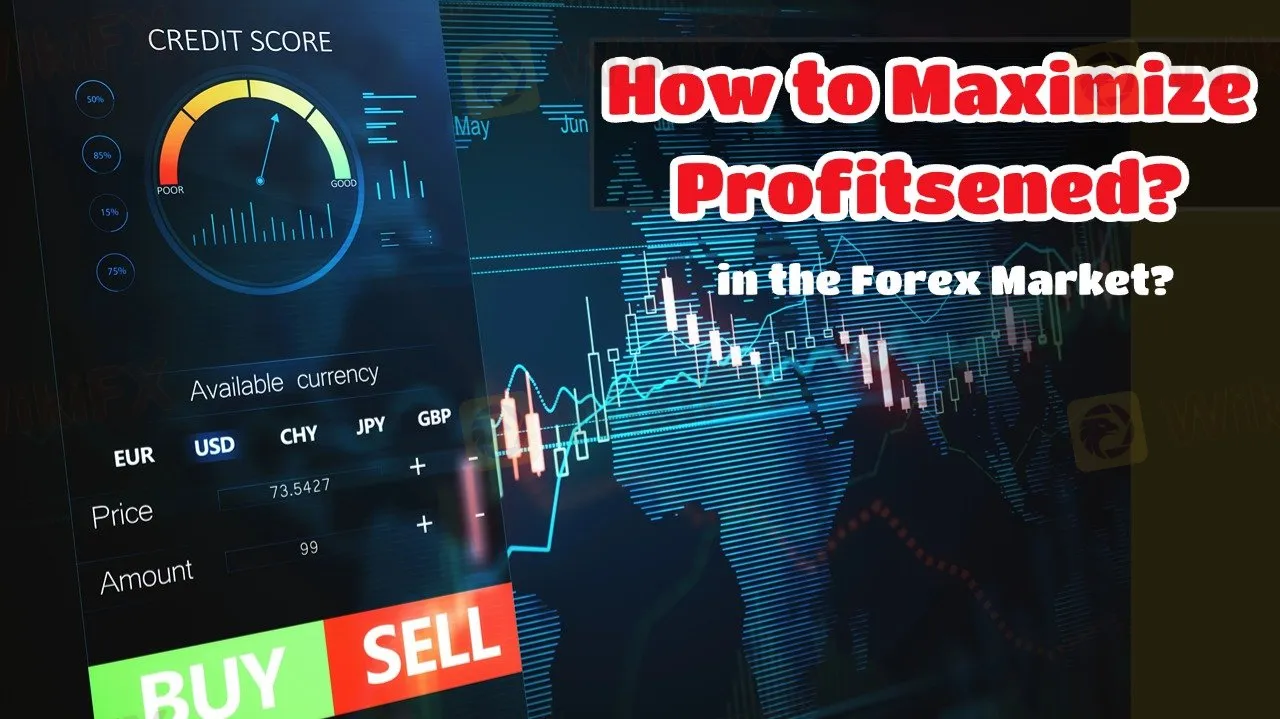简体中文
繁體中文
English
Pусский
日本語
ภาษาไทย
Tiếng Việt
Bahasa Indonesia
Español
हिन्दी
Filippiiniläinen
Français
Deutsch
Português
Türkçe
한국어
العربية
How to Maximize Profits in the Forex Market?
Abstract:The forex market is ever-changing—how to secure steady profits is the key question for every trader.

At its core, forex trading involves buying currencies expected to appreciate or selling currencies expected to depreciate, earning profits from exchange rate fluctuations. As the largest financial market globally, forex sees daily trading volumes reaching trillions of dollars.
It operates as a zero-sum game—one party profits while the other loses. Traders can go long (buy) or short (sell) to capitalize on both rising and falling markets. Unlike stocks or commodities, short-selling in forex carries no negative connotation, giving traders greater flexibility.
To achieve consistent profitability, it‘s crucial to follow prevailing trends and implement well-structured strategies. For example, shorting USD/CAD at 1.0950 and closing the position at 1.0900 would yield a 50-pip profit. Monitoring key global economic data and monetary policies—such as Australia’s high-yield government bonds, which often support AUD strength—can help traders make informed decisions. Combining technical and fundamental analysis while managing risk effectively is vital.
Traders should avoid emotional pitfalls like dwelling on “what could have been” and instead focus on disciplined, rational trading.
The forex market is highly volatile, with trends that can shift abruptly, leading to potential losses if mishandled. While opportunities abound, traders must always account for risks. Events like sudden U.S. dollar rebounds or shifts in global economic policy can adversely affect open positions.
Therefore, while chasing profits, traders must stay calm, exercise caution, stick to their strategies, and avoid impulsive decisions to ensure sustainable success.

Disclaimer:
The views in this article only represent the author's personal views, and do not constitute investment advice on this platform. This platform does not guarantee the accuracy, completeness and timeliness of the information in the article, and will not be liable for any loss caused by the use of or reliance on the information in the article.
Read more

Fed Holds Rates Steady! Yen Faces Growing Uncertainty
The Fed stays put but strikes a hawkish tone. The yen remains under pressure as market uncertainty deepens.

Is Your Money Safe with Libra Markets? Check Out Fast!
n this exposure episode, we will take you through the heinous game played by Libra Markets, an unregulated forex broker. Take a look at how people are facing issues regarding withdrawals.

TradeHall vs. HYCM: Which Broker Should You Choose?
When choosing a broker, understanding the difference between superficial features and real regulatory protection is essential. In this article, WikiFX will compare TradeHall and HYCM. While on the surface, both brokers offer a wide range of trading instruments, the real difference lies in their regulatory statuses, which is a commonly overlooked factor for traders when they opt for brokers.

Trade Nation vs. FBS: Which Broker Is Better for New Traders?
If you're new to trading, choosing the right broker can feel overwhelming. Two popular choices, Trade Nation and FBS, offer very different experiences. This comparison breaks down which is better suited for beginners, based on ease of use, safety, costs, and support.
WikiFX Broker
Latest News
Tether Freezes $12.3 Million in USDT Over Money Laundering Concerns
MiCA Unlocks EU Crypto Market, but National Tensions Rise as Gemini and Coinbase Near Approval
Retirement Dreams Shattered: Don't Do This To Yourself!
Philippines Sets Southeast Asia’s First Crypto Regulatory Framework
EU Regulators Imposed Over €71M in Sanctions in 2024, ESMA Calls for Enforcement Convergence
FortuixAgent Review 2025: Is it Scam or Legit?
Danske Bank expects the European Central Bank to make its final interest rate cut in September.
No Regulation, Revoked Licence: Is Tradehall Safe to Use?
FXGT.com Trading Platform Review 2025
ATTENTION! Red Alert on These Brokers !
Currency Calculator


